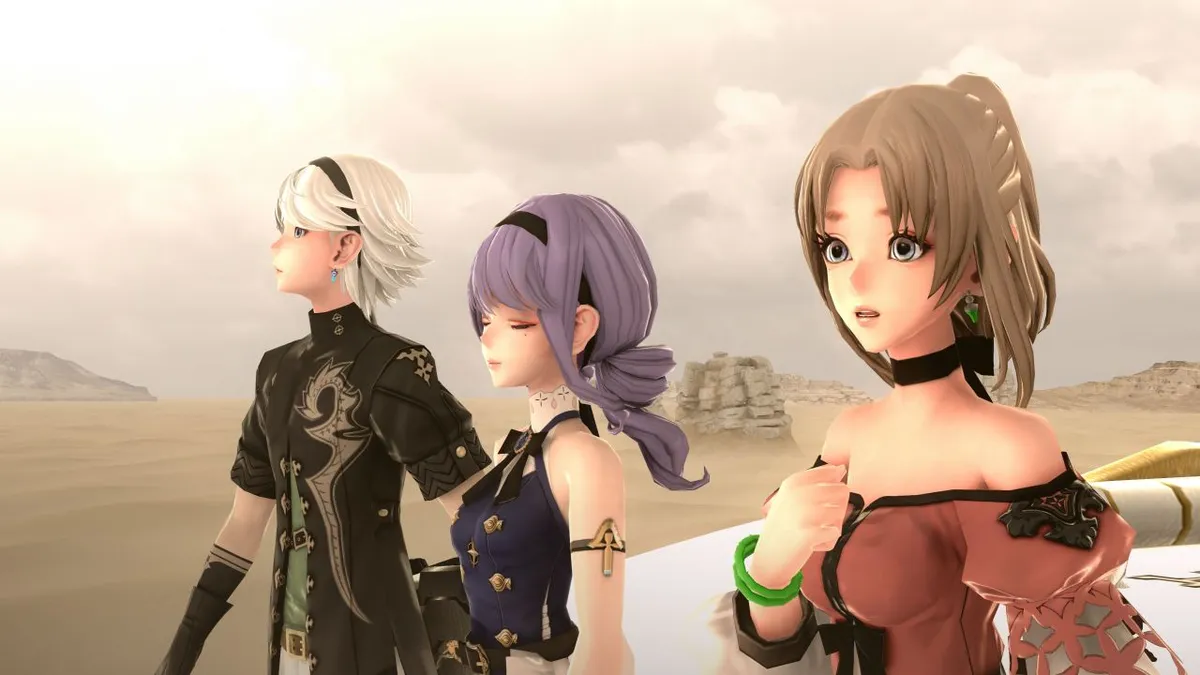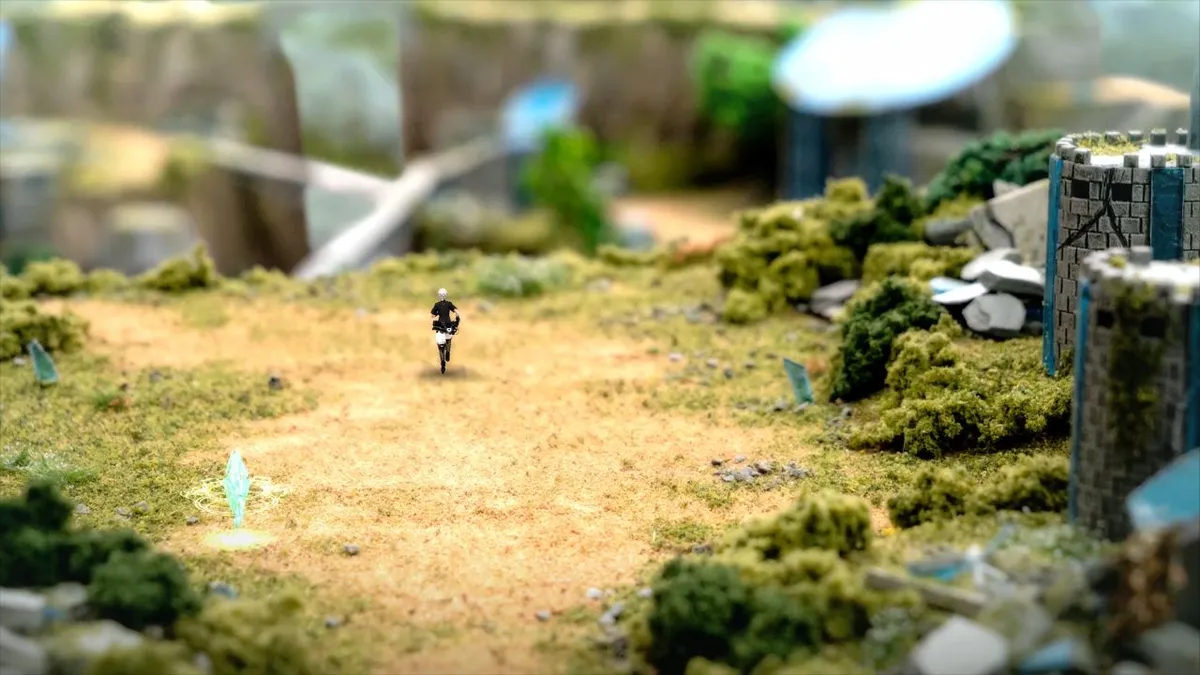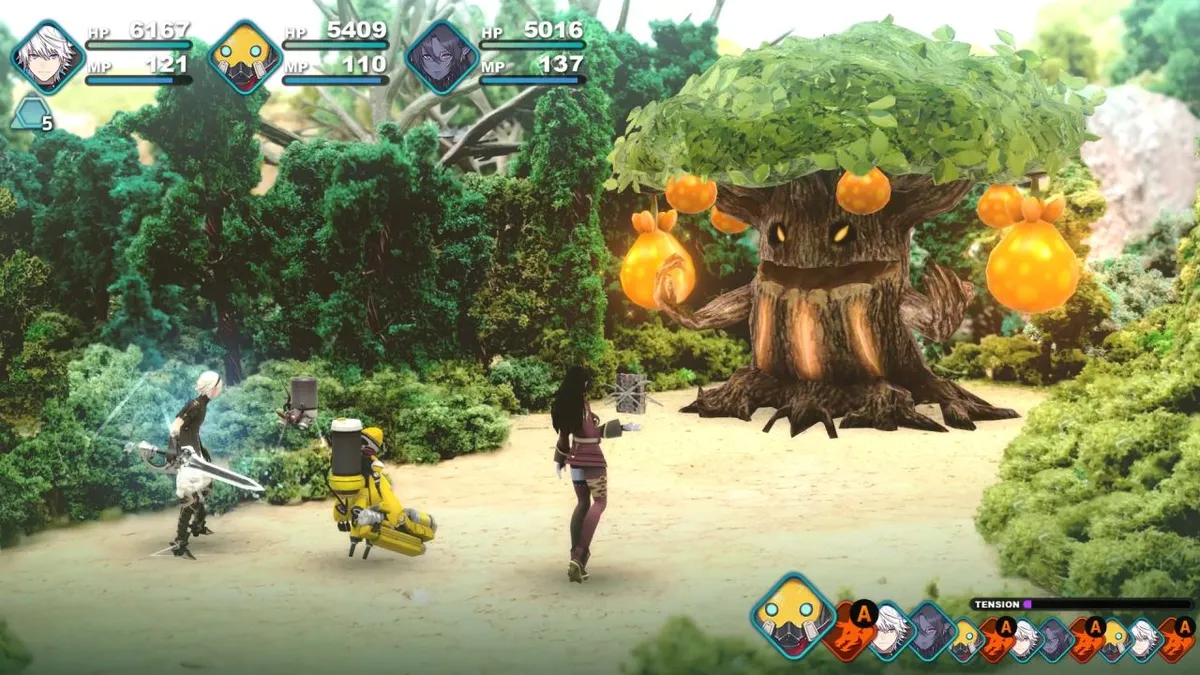Fantasian Neo Dimension: They do (not) make them like they used to

You could be forgiven for not knowing that Fantasian Neo Dimension is a re-release of a game that is only three years old. Despite big names like Hironobu Sakaguchi and Nobuo Uematsu attached—both of Final Fantasy fame—the title went under-appreciated during its initial 2021 release due to its exclusivity on Apple Arcade. Now, thanks to a surprising reunion between Sakaguchi and Square Enix, Fantasian finally gets the shot at success it deserves.
Neo Dimension adds a handful of notable upgrades over the original iOS version: a ‘normal’ difficulty level, new game +, a welcome endgame challenge called the Void Realm, and—perhaps most exciting—voice acting. Yet what is most striking about replaying Fantasian on consoles (I played on PS5) is how all these added features are the cherry on top of what is and always was a fantastic RPG. This begs the question: what has changed since its iOS release? Even with its upgrades, Fantasian is still the same game it was three years ago and stands largely on the mechanical and narrative strengths that it had in 2021. Which means that the answer is that the game hasn’t changed, the industry has.
Much has been made about the state of Final Fantasy over the past two decades. In 2003, Sakaguchi left Square Enix—and the franchise he created— on bad terms, later founding developer Mistwalker in 2004. Since the parting of Sakaguchi many have viewed Final Fantasy as in a state of freefall. There are a few possible reasons for that, be it overblown expectations from Square Enix, prioritizing graphics over quality storytelling, or devoting long development cycles to a remake project that has had mixed responses two entries in.
What does seem clear, as Marc Normandin writes in PC Gamer, “is that the era of Final Fantasy as the Japanese role-playing game series that most people are thinking of when the genre comes up—the one with a grip on games culture that’s a guaranteed sales bonanza—is at an end.” Looking outside of Square Enix, the industry is leaning away from taking chances and pushing the envelope in favor of dumping money into years-long live-service projects, remakes, and the pursuit of graphical fidelity. Fantasian stands in contrast to this.

At risk of sounding like an old person, Fantasian feels like the classic RPGs I grew up with. That shouldn’t be surprising, it’s literally made by the people who made those classics; Games like Final Fantasy VI, Chrono Trigger, and more. But more than any of that, what makes it stand alongside those titans in my mind is the sense of childlike wonder Fantasian instills in me as a player. Running around the gorgeous locales of the world, all of which were made using real-life dioramas, I can’t help but get giddy at what might be around every corner as the fantastic score from Uematsu ebbs and flows.
Even with Neo Dimension being my second time in the world of Fantasian, this joy doesn’t go away. It’s not because the story is exceptional, in fact it hits plenty of RPG tropes hard. The protagonist is an amnesiac white boy with cool hair, and he’s got to save the world, which itself is a mix of medieval fantasy and sci-fi cliches. Yet what Sakaguchi and the team at Mistwalker succeed at is the character stories that populate the world, the smaller human moments. These quiet pieces of narrative discovery are the things that especially stick in my mind during my playthrough. It makes this almost generic world of Fantasian deceptively enthralling. There is a mundanity to it that makes it even more believable as a lived-in world with stories to discover, and you can’t help but want to unearth every single one until you find yourself at the story’s end with tears in your eyes.
It would be incredibly easy to overlook Fantasian as an attempt to capitalize on fan nostalgia for ‘the good old days’. The opening is a clear riff on FF7’s opening bombing mission, there is a character that can be described as discount Sephiroth, and more. But rather than another half-baked nostalgia trip like Sea of Stars, Fantasian subverts, reinvents, and expands on its many homages to the history of Final Fantasy. Sakaguchi is clearly a developer reflecting on his relationship with the series he will be forever linked to, even if it has been a pain point for two decades. He has had the time to reflect on what these iconic games mean to him as a person and a creator. Rather than simply embracing or rejecting this part of his life, Fantasian is a reflective project that seeks not just to accept the past but to build on it. In light of the rerelease being published by Square Enix, it leaves the impression that working on the original version of Fantasian was a big part of Sakaguchi’s healing process in terms of how things ended with the company a little over twenty years ago.

Fantasian Neo Dimension comes, in some ways, at the perfect time. The father of Final Fantasy returns to Square Enix to release what might as well be an unofficial entry in the series that brings back everything fans love about the golden age right as disillusionment with the mainline franchise seems to be reaching a fever pitch. It is smaller and weirder than what Square Enix has been doing with Final Fantasy, and all the more wonderful for it.
Fantasian is, however, also the exact type of game Square Enix has been neglecting in recent years. The seemingly B-tier RPGs like both Octopath Travellers, Harvestella, and Triangle Strategy. All of which have gone underappreciated and—more importantly—under-marketed by Square Enix. While these games aren’t always perfect, they are clearly attempting to iterate in unique ways that don’t solely rely on adhering to modern trends and a focus on graphical fidelity. But what Fantasian has that none of those games had is the father of Final Fantasy’s name attached to it. These are also the type of games most likely to be lost in Square Enix’s shift to “quality over quantity” as outlined in a May 2024 financial report, a strategy that will favor AAA releases.
I do hope Fantasian gets its time in the sun and doesn’t become another underperforming failure in the eyes of Square Enix. It’s a fantastic RPG worth your time. Yet more than anything I hope that it encourages players bemoaning the state of Final Fantasy, or AAA games at large, to take chances on the many smaller and weirder projects being released that don’t have the father of Final Fantasy’s name attached to it but are just as compelling.